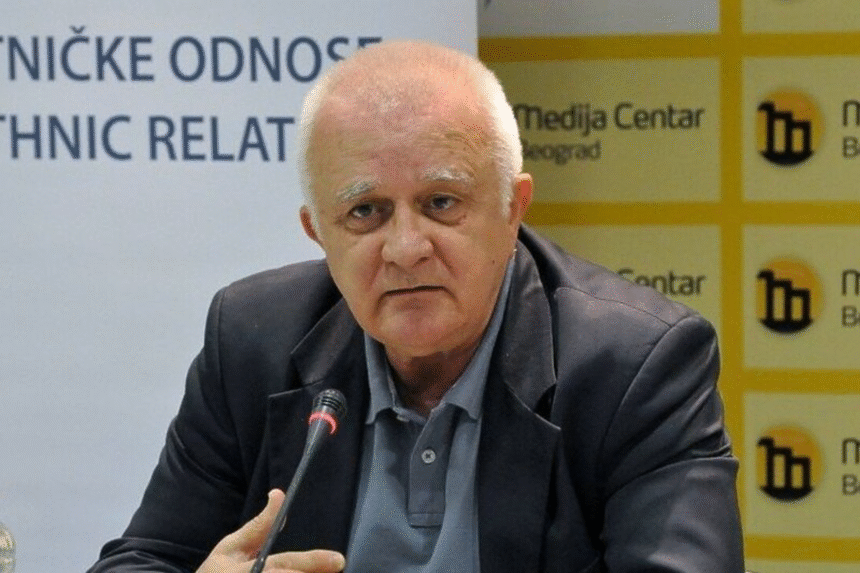Serbia is facing a critical political crossroads more than 25 years after the democratic transition of October 5, 2000. President Aleksandar Vučić, a long-dominant political figure, now stands at the center of a deepening crisis.
In an interview with Inbox7.mk, Dushan Janjić, President of the Forum for Ethnic Relations in Belgrade, analyzed Vučić’s political maneuvers, populist strategies, and the growing pressures—both domestic and international—that are shaping Serbia’s future, reports KDP.mk.
Janjić described growing unrest in the country, citing anti-government protests, increasing social tensions, and student as well as civil society activism as evidence of structural dissatisfaction.
“For those of us living in Serbia, it is clear that we are going through a period of deep political and social crisis,” Janjić said. “The time for a peaceful and democratic solution is running out, and the main responsibility lies with the Serbian authorities, led by Vučić.”
He highlighted the risks of endemic corruption, organized crime, and weak institutions, warning that these factors could destabilize not only Serbia but the wider region. Referring to Croatian Prime Minister Andrej Plenković’s remarks at the Bled Strategic Forum about potential unrest in Serbia, Janjić agreed that the country risks becoming an unstable environment for business and investment.
According to Janjić, Vučić is the “most dynamic actor in fueling the crisis” but also has the capacity to facilitate a peaceful solution. From the Kosovo dialogue launched in 2017 to recent internal challenges, Janjić stressed the lack of a long-term strategy and weak institutional capacity as the main flaws of the current administration. Failures ranging from the mismanagement of Serbian community institutions to clashes with NATO and paramilitary groups have undermined governance credibility and effectiveness.
He warned that Serbia’s political path remains uncertain. As Vučić consolidates power through ideological and populist strategies, including the creation of the “People’s Movement for the Protection of the State,” risks remain of prolonged crisis, political deadlock, and possible escalation of violence.
“Twenty-five years after October 5, Serbia faces a choice: change or conflict,” Janjić said. “The old question—how to overcome Milošević’s legacy—demands a new answer.”
Janjić emphasized the role of civil society and student activism, describing these groups as the only actors currently enjoying unquestionable moral and political legitimacy. He pointed to student demands for justice and transparency after the Novi Sad events and their calls for early elections as key drivers of social pressure for reform.
He also criticized the role of external actors. According to him, international engagement—by the EU, US, Russia, and China—has often prioritized geopolitical, economic, and security interests over support for sustainable democratic reforms in Serbia. “From their perspective, Vučić and Serbia are seen as a platform for external influence, with mixed incentives and limited accountability,” he said.
Looking ahead, Janjić recommended urgent measures to stabilize the country, including de-escalation of security forces, accountability for corruption, and oversight mechanisms for intelligence and law enforcement agencies. He proposed the creation of a National Security Agency to safeguard democratic institutions, the rule of law, and national security, alongside a roundtable mechanism for peaceful political dialogue.
“Any alternative to a peaceful and electoral solution—whether prolonged crisis, authoritarian consolidation, or armed conflict—would result in loss of human life, capital, and time for reforms,” Janjić said. “In the end, all major actors must sit at the table and reach an agreement on Serbia’s future.”
Janjić concluded that Serbia’s post-Vučić trajectory will determine whether the country emerges as a functional democracy or sinks deeper into authoritarianism. Without strategic reforms, he warned, Serbia risks remaining a peripheral state, lagging behind the needs and opportunities of its society.







